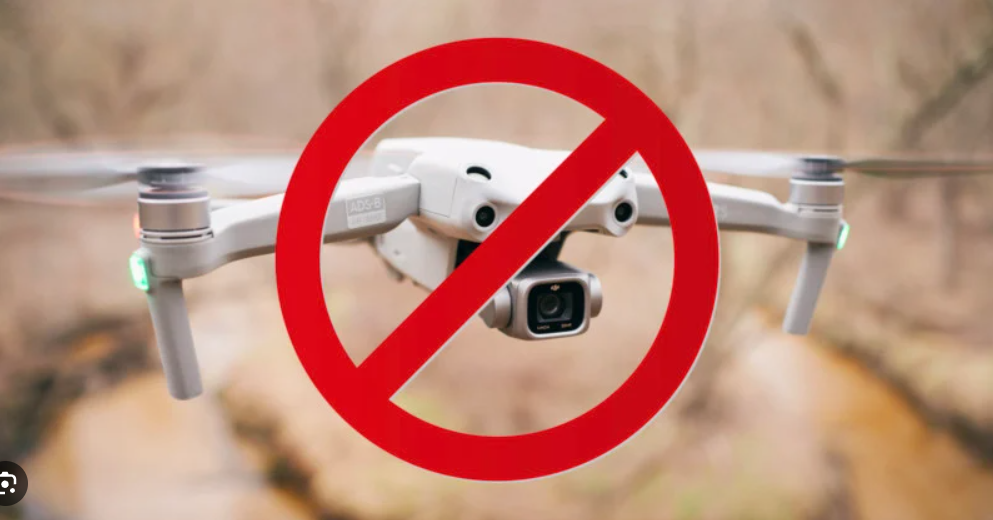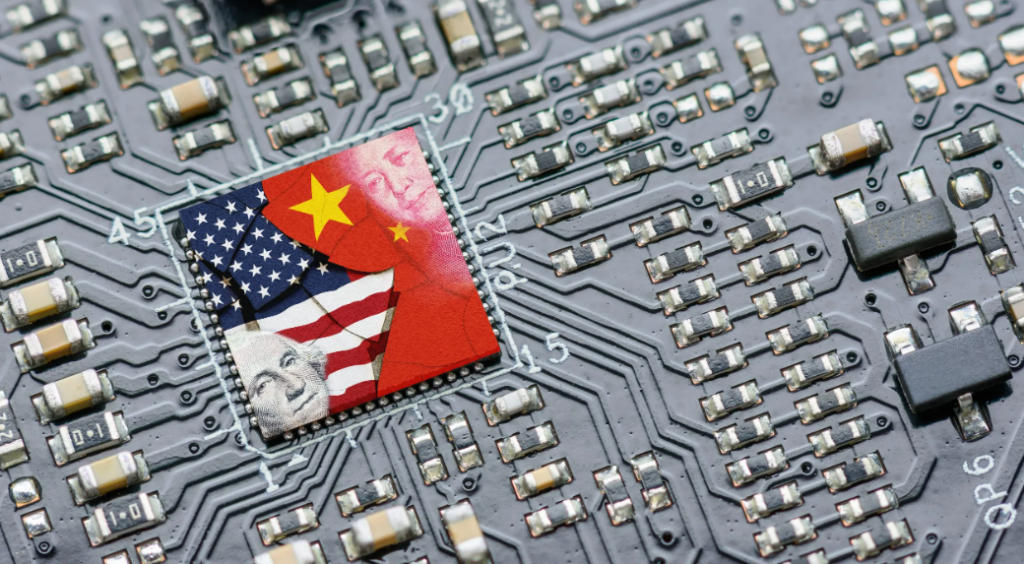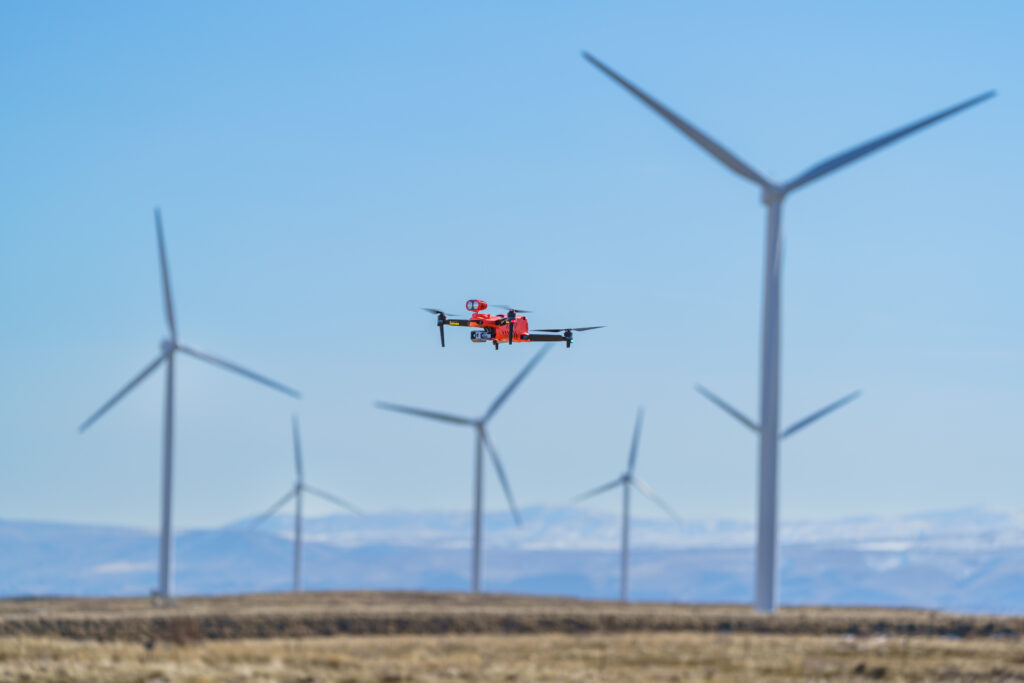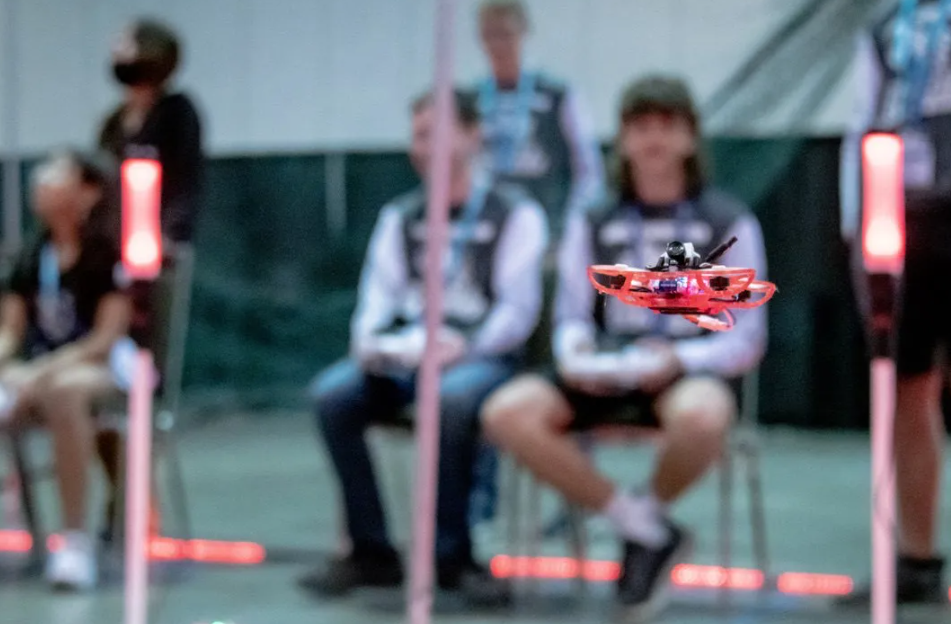
Bitcraze Drones
The Implications of the “Countering CCP Drones Act
March 5, 2024 — 6 minutes
In a significant legislative move, the “Countering CCP Drones Act” has been introduced in the 118th Congress, aiming to amend the Secure and Trusted Communications Networks Act of 2019. This proposed amendment seeks to address the growing concerns around telecommunications and video surveillance equipment and services produced or provided by DJI Technologies, a company commonly associated with Shenzhen Da Jiang Innovations Sciences and Technologies Company Limited.
Overview of the Act
The primary goal of the “Countering CCP Drones Act” is to broaden the scope of the Secure and Trusted Communications Networks Act of 2019 by including specific equipment and services from DJI Technologies in the list of covered communications equipment or services. This move reflects a growing awareness and caution in the United States regarding the potential security risks posed by technology companies with close ties to the Chinese Communist Party (CCP).

Key Provisions
The bill introduces critical amendments, notably the addition of a clause that classifies both telecommunications and video surveillance equipment produced by DJI Technologies, as well as services provided by the company or utilizing its equipment, as covered under the Act. This classification essentially places DJI’s products and services under scrutiny, aligning with the Act’s aim to protect the nation’s communications networks from security threats.
Furthermore, the amendment ensures that all references within the Secure and Trusted Communications Networks Act of 2019 are updated to reflect the inclusion of DJI Technologies’ equipment and services, ensuring comprehensive coverage and enforcement of the regulations.
Implications for National Security
The inclusion of DJI Technologies in the list of covered communications equipment and services is a clear indication of the U.S. government’s stance on the importance of safeguarding national security against potential threats posed by foreign technology providers, especially those with links to the CCP. This amendment underscores the critical need for vigilance in monitoring and controlling the technology that enters the U.S. telecommunications and surveillance landscapes.
By targeting DJI Technologies specifically, the Act sends a strong message regarding the U.S. government’s commitment to countering potential espionage and cybersecurity threats. DJI, being a leading provider of drone and surveillance technology globally, has faced scrutiny over concerns that its products could be used for spying purposes or to gather sensitive information.
DJI’s Presence on the Section 889 Blacklist
DJI Technologies’ inclusion on the Section 889 blacklist has already cast a shadow over its products and services within the United States, particularly concerning federal contracts and procurements. Section 889 of the National Defense Authorization Act (NDAA) for Fiscal Year 2019 prohibits federal agencies from procuring or using telecommunications and surveillance equipment from certain Chinese companies, including DJI, deemed as posing a security risk. This development has significant implications, not just for federal operations but also for educational institutions that have come to rely on DJI drones for instructional purposes.
Broader Implications of DJI’s Blacklisting
The presence of DJI on the Section 889 blacklist underscores the U.S. government’s concerns regarding the potential security risks associated with using DJI’s telecommunications and surveillance equipment. For educational institutions, this blacklisting serves as a precursor to the broader restrictions proposed under the “Countering CCP Drones Act.” It highlights the need for schools to critically assess the security implications of utilizing DJI drones within their programs, considering the potential for these concerns to extend beyond federal procurement into the realm of educational technology use.
Impact on DJI Tello Usage in Schools
The nuanced landscape of drone technology usage in educational settings takes an interesting turn with the consideration of DJI Tello drones. Despite DJI’s inclusion on the Section 889 blacklist and the broader implications of the “Countering CCP Drones Act,” the specific case of DJI Tellos in educational environments presents a less immediate concern, primarily because these drones do not connect to the internet. This characteristic ostensibly mitigates the primary security concerns associated with telecommunications and surveillance equipment that the legislation and blacklist aim to address.
The DJI Tello drones have been popular in educational settings for their affordability, ease of use, and the engaging learning experiences they facilitate in programming and robotics. Their offline nature — the lack of internet connectivity — means they are not directly implicated in the cybersecurity concerns that led to DJI’s products being scrutinized under national security measures. This has allowed schools to continue using Tello drones without the immediate pressure to discontinue their use due to security risks.
Discontinuation of DJI Tellos and Looking Ahead
However, with DJI Tellos being discontinued, educational institutions are faced with the challenge of finding suitable replacements that align with both their instructional goals and compliance requirements. The discontinuation serves as a natural point for educators to reassess their drone technology resources and consider future-proof and compliant alternatives.
In response to this evolving scenario, the DroneBlocks Autonomous Drone Level II Kit emerges as an excellent successor to DJI Tellos for educational purposes. These kits not only offer a compliance advantage, being Section 889 compliant, but also elevate the educational value by introducing students to more advanced concepts of drone autonomy and programming. The Autonomous Drone Level II Kit is designed to foster an in-depth understanding of drone technology, coding, and the principles of autonomous flight, providing a seamless transition from the basic flight and programming concepts taught using Tello drones.
Implications for Schools Using DJI Drones and Alternatives Through DroneBlocks
The introduction of the “Countering CCP Drones Act” has significant implications for educational institutions across the United States that currently utilize DJI drones for educational purposes. Schools have increasingly adopted drone technology for a variety of applications, including STEM (Science, Technology, Engineering, and Mathematics) education, where drones offer a practical and engaging way to teach programming, physics, and technology. However, with the proposed legislative changes, schools may need to reconsider their use of DJI drones and explore alternative solutions.
Impact on Educational Institutions
Educational institutions that rely on DJI drones for teaching and learning activities may face challenges in adhering to the new regulations. The Act’s focus on securing the nation’s telecommunications and surveillance networks against potential threats could restrict the use of DJI drones within educational settings, prompting schools to seek out compliant alternatives that ensure both educational efficacy and adherence to national security standards.
Alternatives Through DroneBlocks
Fortunately, DroneBlocks offers several alternatives to DJI drones that are suitable for educational use, ensuring that schools can continue to incorporate drone technology into their curriculums without compromising on security or educational value.
- Autonomous Drone Level II and III Kits: These kits are designed to teach students about autonomous flight and programming in a hands-on manner. Unlike DJI drones, these kits focus on the principles of drone operation and coding, offering a safe and secure way to explore drone technology without the associated security concerns.

- Commercial Drone Program Leveraging Autel Robotics Drones: Autel Robotics drones are recognized for their high-quality imaging capabilities and reliability. Through DroneBlocks’ Commercial Drone Program, students can learn about drone photography, videography, and data collection in a commercial context. Autel Robotics drones provide a secure alternative to DJI drones, allowing schools to engage students in advanced drone operations and applications.

- FPV (First Person View) Drone Racing Kit: The FPV Drone Racing Kit introduces students to the exciting world of drone racing, focusing on the skills required to build, program, and pilot racing drones. This hands-on experience is not only engaging but also educative, teaching aerodynamics, electronics, and competitive strategy in a format that is completely removed from the security concerns associated with DJI drones.

Navigating the Transition
For schools navigating the transition away from DJI drones, the key will be to focus on the educational outcomes of drone technology use. By selecting alternatives that align with curriculum goals and comply with national security guidelines, educational institutions can ensure a seamless and responsible integration of drone technology into their programs.
Moreover, the shift to alternative drone platforms like those offered by DroneBlocks and Autel Robotics represents an opportunity to diversify the technological experiences offered to students. It encourages a broader understanding of the drone technology landscape, including different types of drones and their specific applications in both educational and commercial contexts.
Shop More Products
From classroom-friendly kits to hands-on tools: Explore our hardware, packages, and accessories tailored for the educational journey.